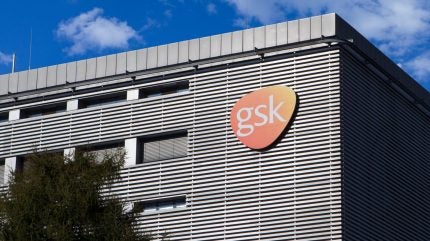
Monday saw a 9% drop in GlaxoSmithKline’s (GSK) share price on the London Stock Exchange (LSE), following a Delaware judge’s ruling on 31 May that more than 72,000 lawsuits over discontinued heartburn drug Zantac, known generically as ranitidine, could go ahead.
Pfizer, Boehringer Ingelheim, Sanofi, and Patheon are also implicated in the cases.

Discover B2B Marketing That Performs
Combine business intelligence and editorial excellence to reach engaged professionals across 36 leading media platforms.
In 2020, the US Food and Drug Administration (FDA) ordered the immediate removal of all raniditine drugs from the market following the initiation of a 2019 investigation in which the agency detected low levels of contamination of N-Nitrosodimethylamine (NDMA) in ranitidine, an impurity linked to some cancers.
At the time, companies such as Teva recalled certain reniditine medicines batches over contamination concerns at the request of the UK’s Medicines and Healthcare Products Regulatory Agency (MHRA).
Judge Medinilla’s 102-page order found the opinions of plaintiffs’ experts to be “reliable and admissible” and will permit expert medical witnesses to testify that scientific evidence shows a link between the cancer of more than 72,000 individuals and their exposure to NDMA through the use of Zantac.
In a responding statement, GSK said the ruling by the Delaware State Court “contradicts” the federal court’s multidistrict litigation (MDL) ruling under the same legal standard, which dismissed all cases alleging five cancer types, in December 2022.

US Tariffs are shifting - will you react or anticipate?
Don’t let policy changes catch you off guard. Stay proactive with real-time data and expert analysis.
By GlobalDataIt also highlighted that following 16 epidemiological studies looking at human data regarding the use of ranitidine, the scientific consensus is that there is no consistent or reliable evidence that the impurity increases the risk of any cancer.
Pfizer and Sanofi have also said that they plan to appeal the ruling, with Sanofi stating that it remains committed to “its defence and to the safety of Zantac”.
Various legal challenges have been underway against Zantac manufacturers in the years since the FDA ordered its removal from the market. Not all cases have gone in favour of the plaintiffs.
Recently, jurors in a Chicago court found that GSK and Boehringer Ingelheim were not liable for a woman’s cancer and that the companies had properly marketed Zantac without its alleged cancer risk.
In 2022, the judge in the MDL case referenced by GSK, which also implicated Pfizer, Sanofi and Boehringer Ingleheim, rejected the prospect of a full trial, stating that the plaintiff’s lawyers failed to offer credible scientific evidence that Zantac causes liver, bladder, pancreatic, oesophageal or stomach cancer.
Zantac was launched in 1988 and became one of the first-ever drugs to reach over $1bn in yearly sales. It was one of GSK’s top products and was later sold to other companies, including Pfizer.




